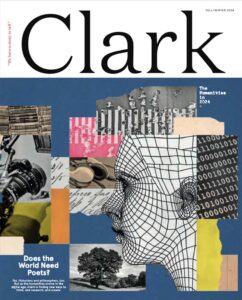Clark University Magazine
iShakespeare
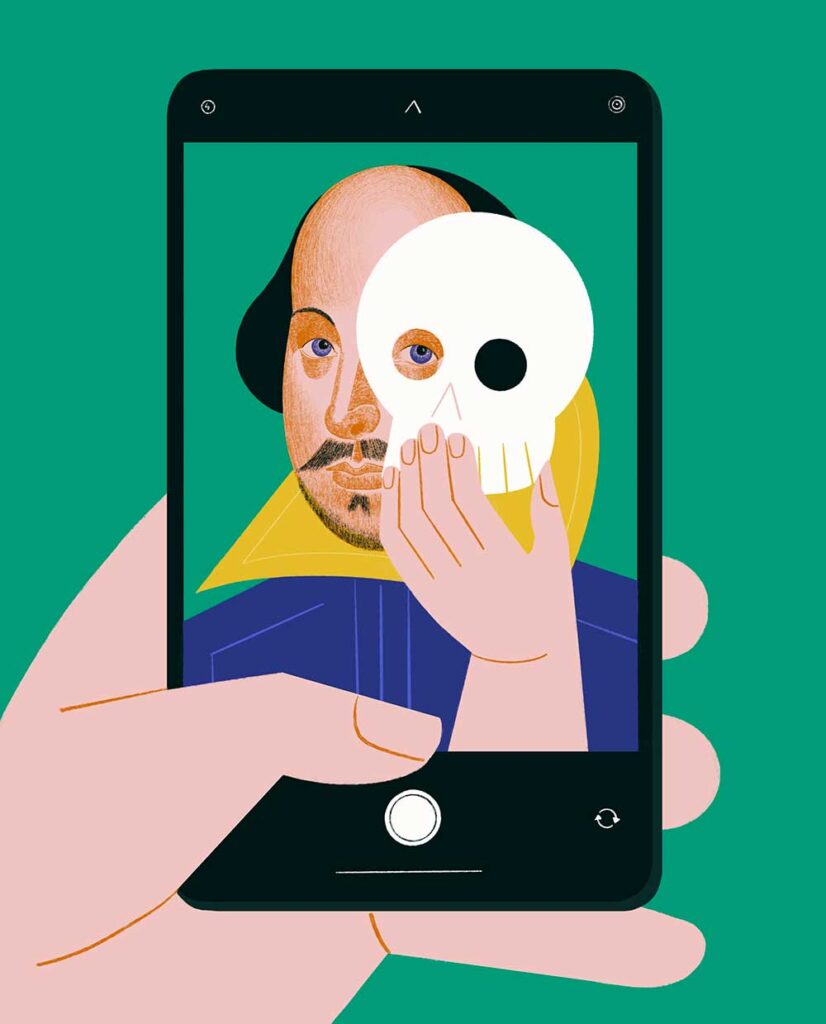 Growing up in Southeast Texas, Justin Shaw never saw a Shakespeare play performed. As much as he hoped to be inspired, the Bard simply didn’t feel relevant.
Growing up in Southeast Texas, Justin Shaw never saw a Shakespeare play performed. As much as he hoped to be inspired, the Bard simply didn’t feel relevant.
“As a young Black guy in Texas, reading about some despondent white prince whining about stuff and never doing anything about it wasn’t a good entry point,” he laughs.
During his junior year at Morehouse College, Shaw studied in London, where he took two classes in Shakespeare and watched live performances. Here, he discovered his missing inspiration.
“As far as I tried to run away from him, I kept running back to Shakespeare,” he recalls. “And I kept finding myself in Shakespeare.”
Shaw is still running back to the playwright, still finding himself in the verses, still discovering prescient lessons about contemporary political tumult, social struggles, and class conflicts embedded in stage pieces written 400 years ago. As Clark’s resident Shakespeare scholar in the English Department, he works not only to help his students perceive why Shakespeare continues to move audiences to tears, to laughter, to deeper understandings of human motivation—but also why his words still matter, since he last put quill pen to paper in 1610.
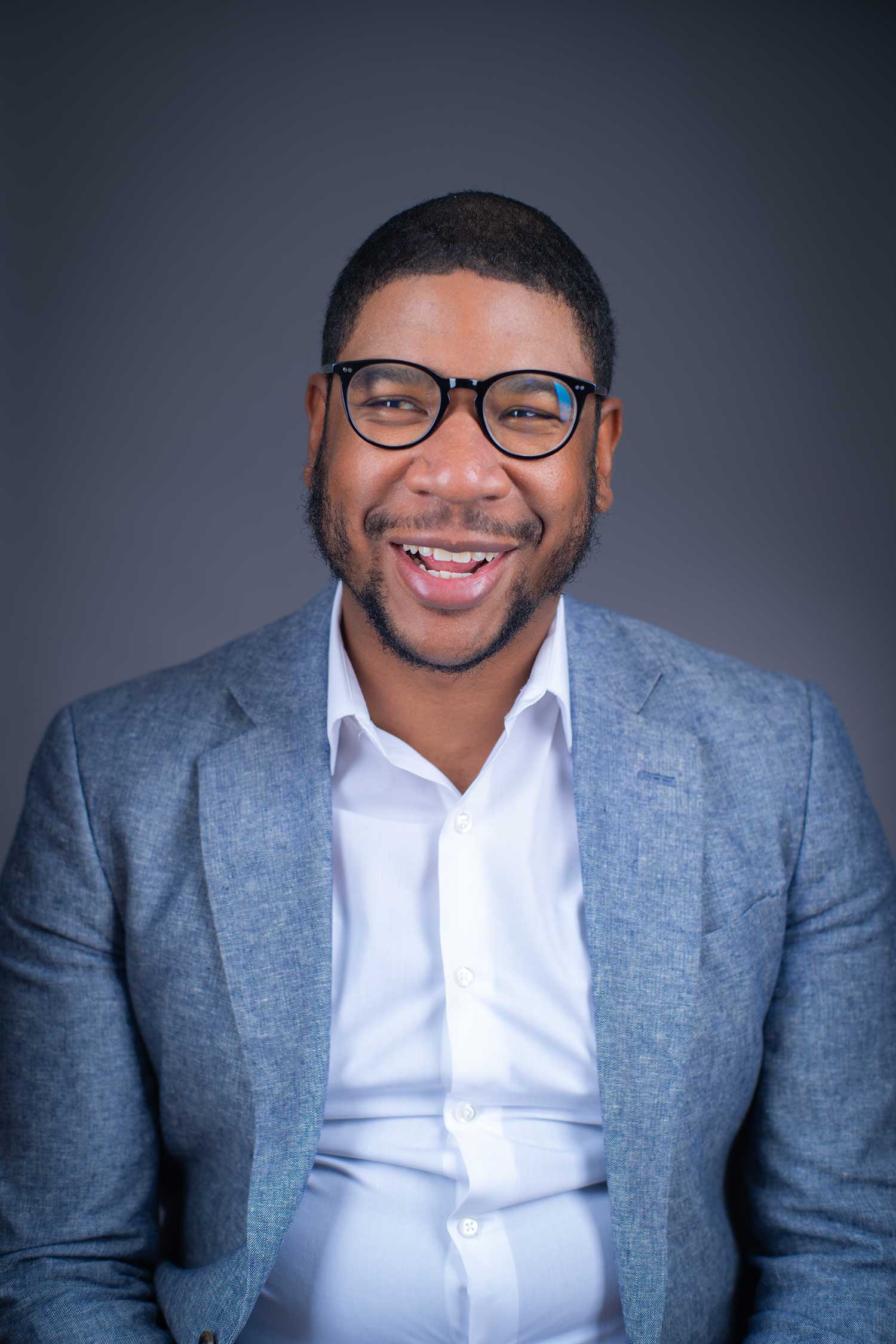
Can a playwright who died four centuries ago truly shed light on who we are in 2024? Should his work still be an essential part of our literature studies?
Yes to both, Shaw says.
When Shaw joined the Clark University English faculty in 2020, his first class, an advanced Shakespeare seminar, was titled Kings, Queens, and Tyrants. It was a presidential election year, the U.S. was extraordinarily divided, and the coronavirus was killing thousands of people every week.
“People are putting their lives on the line, and we’re reading a play?” Shaw recalls thinking. “I was curious: What’s the purpose of a Shakespeare class in a world like this?”
In his classes, Shaw invites his students not just to read Shakespeare, but “to do Shakespeare” and to see themselves in the plays. “There are so many characters, so many scenarios we can find ourselves in, with plots that represent very real situations. That’s when it stops being about a dead white guy they have to study, who everyone says is so important. I want them to see and feel the importance.”
He notes that English departments have long required students to take Shakespeare courses to earn their degree, and many classes are taught in such a way “that reinforces the old vanguard of ‘Shakespeare is the best writer ever.’
“You have professors thinking that their job is to teach you the genius of Shakespeare, and if you can’t get it, that’s your problem,” he says. “I’m not one of those people.”
“Shakespeare has been an essential vehicle for the most important debates about humanity, culture, and society for the last 300 years,” says Virginia Mason Vaughan, professor emerita of English, who was Clark’s resident Shakespeare scholar for 37 years.
The author put his pen to race, gender, class, and ableism in his comedies, tragedies, and history plays. The comedies include marriage games, with “men and women figuring it out,” Vaughan says, although at the time women were legally subordinate—and when the plays were performed, women weren’t allowed to act, so the female characters were portrayed by men.
“The issue of women’s place in society is still relevant today,” Vaughan notes, as is the concept of masculinity, which takes center stage in numerous plays.
Vaughan also believes Shakespeare’s contribution to language cannot be discounted. “He was writing at a time when language was changing. The vernacular was developing, the printing press had been invented, and more people were learning to read.
“Like madness is the glory of this life.”
Timon of Athens
“So many of his phrases have become second nature to us,” she adds, like “household words,” “good riddance,” “love is blind,” “a foregone conclusion,” and about 1,700 words the playwright is credited with inventing.
In 2002, to give students an opportunity to engage with Shakespeare beyond the classroom, Vaughan launched the annual Undergraduate Shakespeare Conference, which allows students to present papers that examine the many facets of the playwright and his works. Student researchers from across the country attended the 2024 “Shakespeare and Play” conference at Clark, where they heard the keynote address delivered by David Sterling Brown, author of Shakespeare’s White Others.
“WE USE SHAKESPEARE TO READ CULTURE—TO READ LIFE.”
April Chronowski ’25, whose paper, “Shakespeare and Theater as Our Green World,” earned the conference’s third place prize, examined the idea of theater as “a tool for social change and individual exploration.”
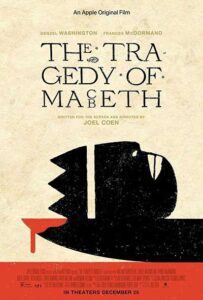
In plays like A Midsummer Night’s Dream and As You Like It, characters escape the order of the city by fleeing to a nearby forested and wild setting. In this natural environment, they resolve issues around romantic relationships, social order, and intergenerational struggles, which exist in the real world.
“Life’s but a walking shadow.”
Macbeth
“The plays are timeless and show the vast array of human experiences—the underlying themes still speak to modern audiences” because they are filled with relatable human emotion, Chronowski said. The texts offer a way for audiences, like Shakespeare’s characters, to “step aside from society” and explore their own motivations and personalities.
“Externalizing our differences makes it easier to deal with them.”
Shaw’s own research interests lie in how Early Modern/Renaissance dramatists and poets use “the language of melancholy” in areas of race or otherness.
“It’s not just feeling down or anxious,” he explains. “It’s power versus powerlessness. It’s the feeling of living in the world as a person who is queer, or who is ‘othered’ in some way, or, in different points in history, as a woman. It’s the feeling of living in the U.S. right now, especially in certain states, where there is anxiety about moving through life. It’s being Black in a world where you don’t know how a police encounter will end for you.”
Some characters in Shakespeare are trying to exist and thrive in an oppressive world. “Othello is a respectable Black man who just wants a seat at the table,” Shaw says, “while Aaron the Moor in Titus Andronicus wants to destroy the table.” In The Merchant of Venice, Shylock is “the other” because he is a Jew.
“I see real-life people’s situations reflected in Shakespeare,” Shaw says. “But I don’t think Shakespeare is the only place we can find them. You have to kind of get a bigger picture of what’s going on; Shakespeare was also watching other plays. Sometimes, to understand Shakespeare, you have to get away from Shakespeare.”
“If you prick us, do we not bleed?”
The Merchant of Venice
In some states—including Shaw’s native Texas—students are getting away from Shakespeare because the plays are being banned from the classroom. “There are important issues in Shakespeare, as there are in a lot of texts, that we should be dealing with head-on,” Shaw says. “I remind my own students often that we have an incredible privilege here at Clark to be able to openly discuss ideas about race and racism, about gender and sexual orientation, about class and religion, and to use these texts to be honest with ourselves about these issues in our own lives.”
In his most recent advanced Shakespeare course, Shakespeare in Black and White, Shaw stressed the importance of Shakespeare by “decentering” the plays. He started by exploring race in two tragedies, Othello and Hamlet, which helps students develop a method for seeing obvious—“and not so obvious”—racism in the texts. He then moved on to modern plays, all by writers of color, that are adaptations of Shakespeare.
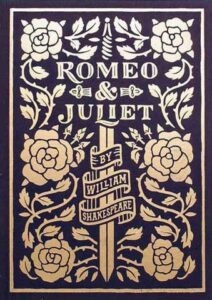
“We use Shakespeare to read culture, to read life, and then use these other modern dramas to bridge the gap.”
As an assignment, Shaw asks his students to write sonnets about topics that interest, challenge, or move them. “I love seeing them work through very personal and important issues through Shakespearean form and content. That’s what Shakespeare did.”
“A rarer spirit never did steer humanity.”
Antony and Cleopatra
Shakespeare is not the be-all and end-all (a Macbeth phrase) of literature studies, but “he provides a helpful lens through which we can read the world,” Shaw says.
When his students graduate from Clark, they may never read another Shakespeare play, “but they’re going to encounter texts. They’re going to encounter politics. They’re going to encounter difference. I want them to be able to encounter anything in the world and say, ‘I know how to read this situation.
“I’ve seen this somewhere before.’” ▣

